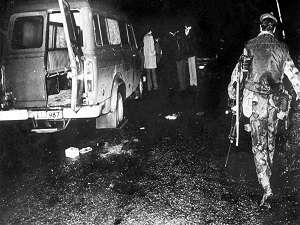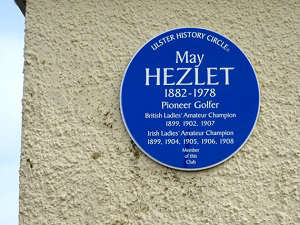
Q Radio News
Anti-Brexit campaigner Raymond McCord has lost a Court of Appeal action against the Government over the Irish border.
He claimed the Northern Ireland Secretary's failure to set out circumstances in which he would direct the holding of a poll on unifying both parts of the island breached constitutional issues.
Mr McCord has taken a series of separate proceedings concerning the alleged impact of EU withdrawal on the peace process and the 1998 Good Friday Agreement.
The court said: "We consider that it is for the respondent to decide what is, or is not relevant to the decision-making process depending on the prevailing circumstances."
The court said there was no requirement for a policy in either the 1998 Belfast Agreement or in the legislation enacting it, the Northern Ireland Act.
"Rather the exercise of those powers involve political judgment in the context of differing and unpredictable events.
"Accordingly, the court considered that a flexible response is required in accordance with the interpretative approach to the Northern Ireland Act."
It said the Government's discretion to direct the holding of a border poll was "unqualified".
Mr McCord's 22-year-old son, Raymond junior, was murdered by the Ulster Volunteer Force loyalist paramilitary organisation in Belfast in 1997.
The victims' campaigner has expressed concern about the impact of Brexit on the peace process.
Last September Mr McCord's legal action challenging the legality of a no-deal exit was dismissed.
His lawyers were also allowed to speak at the Supreme Court as part of a case arguing that Prime Minister Boris Johnson's decision to suspend Parliament was unlawful.
The trial judge in the lower court concerning this Court of Appeal case said it was clear that a border poll in Northern Ireland to produce the outcome of a united Ireland would have to be replicated by a vote producing the same outcome in the Republic of Ireland.
In a written summary of the judgment, the Court of Appeal said: "The court agreed with the trial judge that there is such an inter-relationship which must involve both governments and that any decision as to the holding of a border poll will involve extremely complex political considerations and if not carefully handled, taking account of prevailing circumstances, could give rise to great instability."
It said the law did not specify any matter which should be taken into account or anything which should be disregarded in deciding to call a poll.
"The exercise of discretion must be preceded by the respondent's assessment of the prevailing circumstances which have and will change over time."
That discretion must be exercised honestly and based upon the Government's assessment, using political judgment, of whether a border poll was in the public interest, the court added.
It dismissed the appeal.


 Watchdog identifies series of failings in investigation of Kingsmill Massacre
Watchdog identifies series of failings in investigation of Kingsmill Massacre
 Kneecap at Glastonbury ‘a matter for organisers’ says Cooper
Kneecap at Glastonbury ‘a matter for organisers’ says Cooper
 Plaque unveiled for 1890s champion teen golfer at Royal Portrush
Plaque unveiled for 1890s champion teen golfer at Royal Portrush
 Human remains taken from Hawaiian burial caves repatriated from Northern Ireland
Human remains taken from Hawaiian burial caves repatriated from Northern Ireland
 Kneecap says footage has been ‘exploited and weaponised’ over dead Tory comment
Kneecap says footage has been ‘exploited and weaponised’ over dead Tory comment